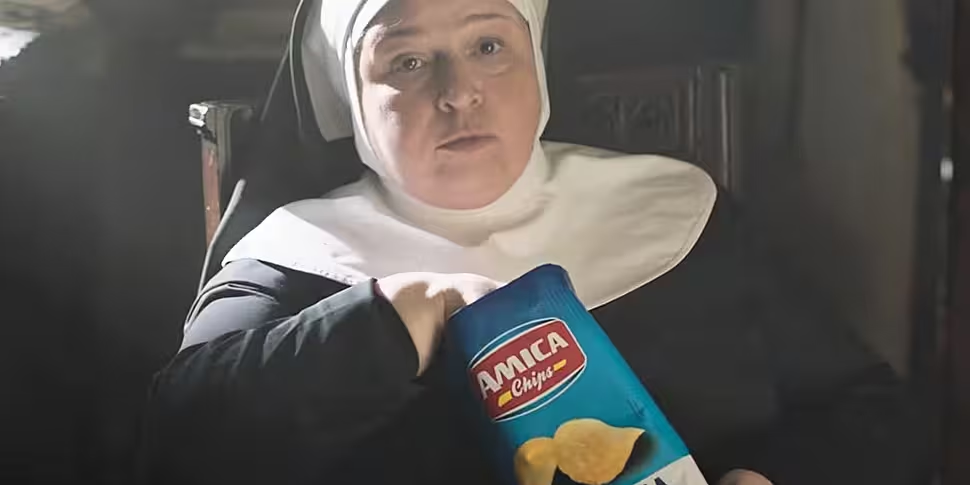A TV advert for crisps is causing a stir in Italy due to its depiction of Catholic nuns eating crisps instead of the Eucharist.
Advertisers have frequently used God and the Church in the past as a marketing tool.
Newstalk's Simon Tierney told Moncrieff the Italian ad for Amica crisps is quite clever.
"It's a brilliant example of something that the advertising industry has been keenly aware of for a century now," he said.
"Like sex, blasphemy sells.
"Often when there's a furore after an ad like this spokespeople for the company will come forward and say things like, 'We didn't realise that this would cause offence'.
"It's very much part of their arsenal and I see it as quite, perhaps, intentional".
Simon said it creates a "delicious collision between two worlds which are supposed to be seperate."
"The space of religion and commerce are supposed to be very exclusive to each other," he said.
"When they collide you have this taboo being broken, which is inevitably very very funny".
Simon said such gambles usually pay off.
"The fact that Amica have taken the risk, probably a worthwhile commercial risk because blasphemy sells, how are they going to get around this?" he said.
"Are they going to get fined? I'm interested to see if they will be.
"But very cleverly there's very little said in the ad; so to take words as a basis for a prosecution is going to be very difficult".
A public blasphemy law is still in place in Italy, most recently being used in 2022.
A man was fined €280 for cursing God's name after someone spilt beer on him outside a bar in Florence.
'They've got the ad out'
Simon said most companies pull the adverts after their initial airing.
"What you'll often find with the history of blasphemy in advertising is that the advertiser will actually pull the ad before to goes to court," he said.
"On the one hand they've got the ad out, the media have picked it up and it's gone everywhere.
"Secondly they don't have to go through a court case because they just pull it down".
Other companies have turned to Jesus and the Church to sell their products in the past.
A Red Bull advert that was aired in South Africa back in 2012 was taken off-air quickly afterwards.
Similarly a 2005 Paddy Power billboard advert in Ireland was pulled in 2007 which referenced The Last Supper.
An advert for Grundig televisions in 1990 was banned by the Advertising Standards Authority (ASAI) for including the tagline: 'Immaculate Reception'.
Ireland voted to remove blasphemy as an offence in a 2018 referendum.









